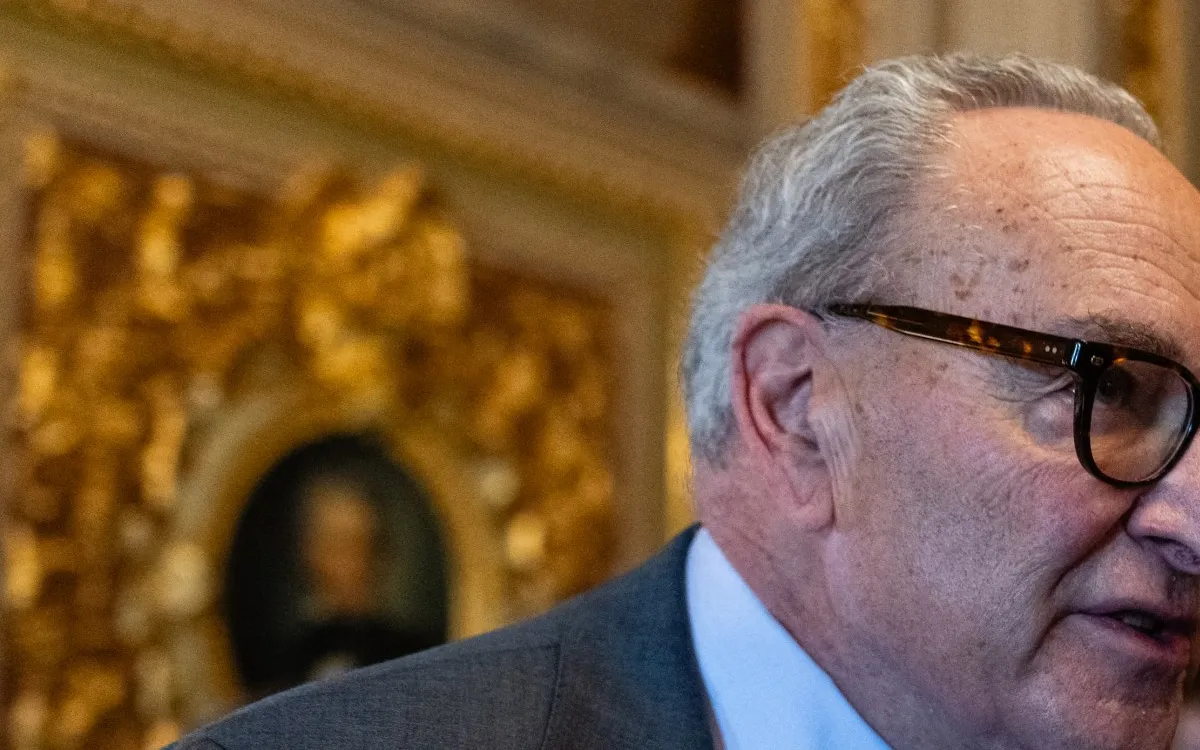
Democratic Senate leader Chuck Schumer is under increasing pressure to resign following a significant backlash from within his party. This comes after seven Democrats broke ranks to support a Republican-led proposal aimed at ending the government shutdown without securing vital concessions. Notably, the agreement fails to extend healthcare subsidies under the Affordable Care Act (ACA), which remains a critical demand from the Democratic side.
The deal, which was passed by the Senate on Monday, ends the longest government shutdown in U.S. history and funds parts of the government until January 30. However, it notably excludes ACA health insurance subsidies that provide essential support to approximately 24 million Americans. In a bid to address this oversight, Senate Republicans have indicated they will hold another vote in December regarding healthcare subsidies, although the outcome remains uncertain.
In a Senate where Republicans hold 53 seats and Democrats have 47, the party's ability to advance bills is constrained by the need for 60 votes. Eight senators affiliated with the Democrats chose to support the Republican measure, including prominent figures such as Dick Durbin of Illinois, Jeanne Shaheen and Maggie Hassan of New Hampshire, John Fetterman of Pennsylvania, Catherine Cortez Masto and Jacky Rosen of Nevada, and Tim Kaine of Virginia. Additionally, Independent Senator Angus King of Maine, who often aligns with Democrats, also voted in favor of the proposal.
Although Schumer, 74, did not support the measure, he faces accusations from party leaders of enabling centrist Democrats to negotiate a deal with Senate Republicans without adequate opposition. In his address on the Senate floor, Schumer highlighted healthcare issues, stating, “The American people will not forget Donald Trump’s cruelty and heartlessness over the past six weeks.” Despite this, progressive Democrats have expressed disappointment with his leadership, arguing that he failed to prevent defections within the party.
Democratic Representative Ro Khanna criticized Schumer on CBS News, asserting that the leader’s endorsement of the deal was pivotal to its passage. “He’s the leader of the Senate. This deal would never have happened if he had not blessed it,” Khanna stated. He further emphasized on social media that Schumer is ineffective and should be replaced, suggesting that financial donors are influencing the reluctance of other Democrats to speak out against him.
Progressive voices within the party, including Alexandria Ocasio-Cortez (AOC) and Rashida Tlaib, have joined in the calls for Schumer to step down. AOC remarked that the average ACA benefit is significant for many Americans and stressed the importance of leaders who stand firm for their constituents. “The average ACA benefit is up to $550 a person/mo. People want us to hold the line for a reason,” she wrote.
Activist Saikat Chakrabarti, who is campaigning for a congressional seat in San Francisco, echoed these sentiments, arguing that Schumer and the current Democratic leadership should resign. “After 40 days of holding firm, with public opinion and momentum on our side, establishment Democrats decided to cave to Trump,” Chakrabarti stated.
In contrast, House Democratic leader Hakeem Jeffries defended Schumer, claiming that he and Senate Democrats have fought valiantly for the American people throughout the shutdown. “Leader Schumer and Senate Democrats over the last seven weeks have waged a valiant fight on behalf of the American people,” he said. Despite the internal strife, Democratic senators voted 14 times against reopening the government without extending the ACA tax credits.
Schumer's leadership position is subject to internal elections within the Democratic Party, which will take place after the November 2026 Senate elections. The 45 Democratic senators, along with two independents who caucus with them, will have the opportunity to vote on his continuation as minority leader. Even if he were to be removed from this leadership role, Schumer’s Senate seat is secure until 2028.
The growing rift within the Democratic Party highlights a significant divide between establishment figures and progressive leaders, raising questions about the party's future direction and leadership as it prepares for upcoming elections.